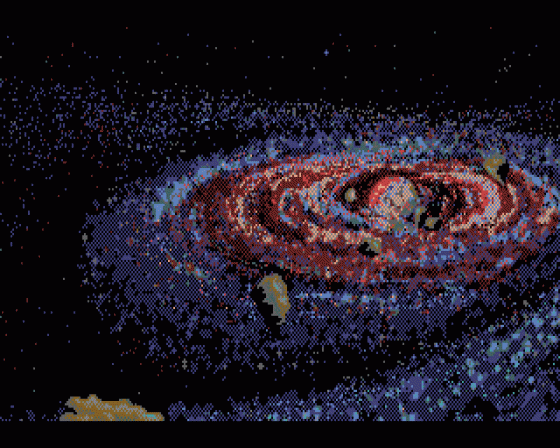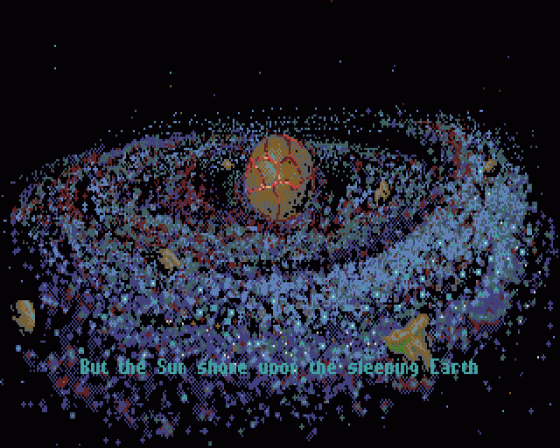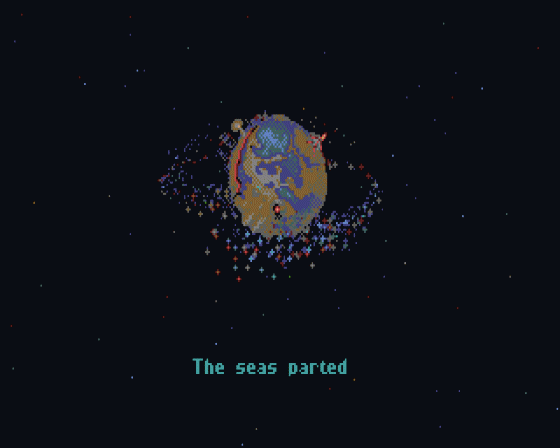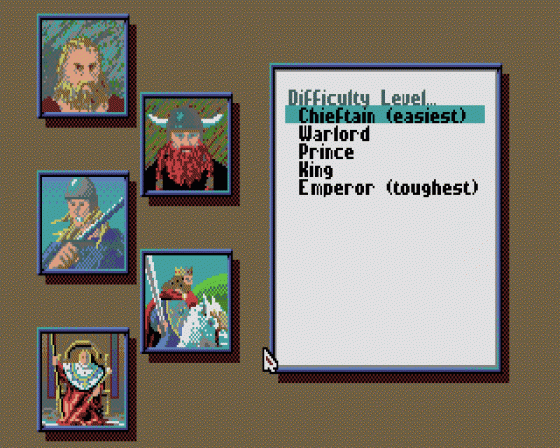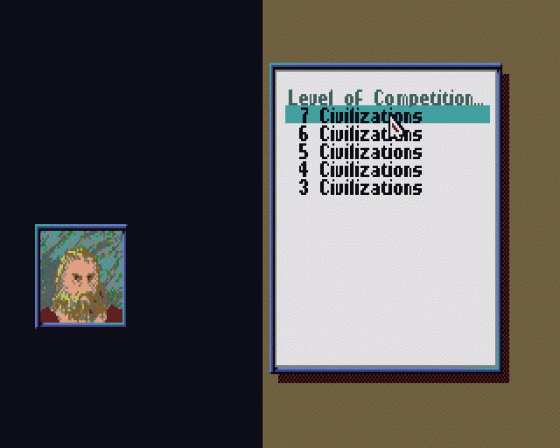
ST Format
 1st June 1993
1st June 1993
Categories: Review: Software
Author: Rob Mead
Publisher: Microprose
Machine: Atari ST
Published in ST Format #46
From Neanderthals to astronauts, man's progress has changed the face of the planet... and brought us Pop Tarts
Civilization
Ever since the first caveman invited the second caveman round to his dwelling for a pint of mammoth's pee and a gander through his erotic cave paintings, the human race has struggled to civilise itself. Philosophy, democracy, religion. You name it, people fought for hundreds of years to achieve it. Even McDonalds. Civilisation gave you your ST, now it's time to repay the compliment.
Civilization is a god game on a massive scale. Not content with enabling you to manage a city or railroad, this sim of life places you in control of a whole nation of people. You're responsible for ensuring their continued prosperity and progress over thousands of years, from their humble beginnings in 4,000 BC to the hi-tech world of off-planet exploration. Naturally, you can't have it all your own way. Up to eight other civilisations are competing for the same piece of the cake. It's your skill as a military leader, diplomat and economist which is going to ensure your success over your rivals.
After an intro sequence which chronicles the development of your planet, you're placed in the middle of a black void on the main screen. As you establish your first city and send out foot soldiers to explore your surroundings, you start to uncover the secrets of your world, make scientific discoveries and encounter other civilizations. This is all starting to sound like a building society ad, isn't it?
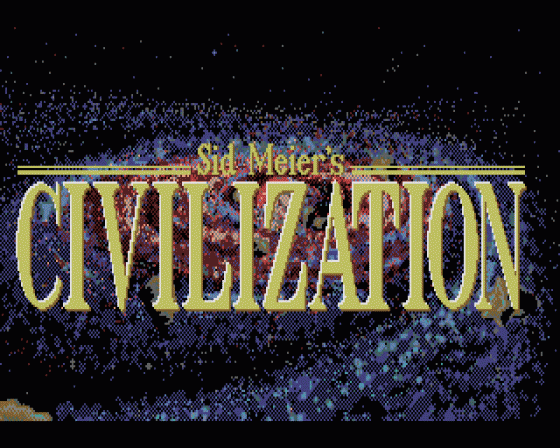
Gameplay in Civilization is centred around an aerial map screen - made up of a series of squares - which gives you an overview of both land and sea. Your people are represented as a series of icons which you move around the screen with a limited number of moves. The number of goes increases with the sophistication of the means of transport - foot soldiers only get one move on "untamed" land, while a road-based chariot gets three or four moves. It's obviously an advantage to develop your nation's infrastructure as quickly as possible, so you can deal with invading forces and establish trading networks. Inevitable this means that gameplay is a bit tedious at first, but things soon start to snowball as you invent your first sailing ships and discover bridge-building.
You can also use the map view to attack your enemies. All you have to do is move one of your troop icons over their position and a battle ensues. This can cause problems for you if you take on a very aggressive power like the Zulus or Mongols, when it's usually better to sue for peace - you can always pile into them later.
Help Is At Hand
While all this rampaging, pillaging and double-dealing is going on, you must not neglect the happiness and decorum of your cities' populations. Fail to build aquaducts, temples or sufficient storage for your products and you could end up with a declining population with a taste for revolt. This becomes especially dangerous if enemy diplomats get involved and start to sabotage your undustrial development or incite the people to riot. Defence of your city is also crucial. If you post all your home city's troops abroad this makes them susceptible to attack and leads to units being disbanded because of lack of support from their home base.
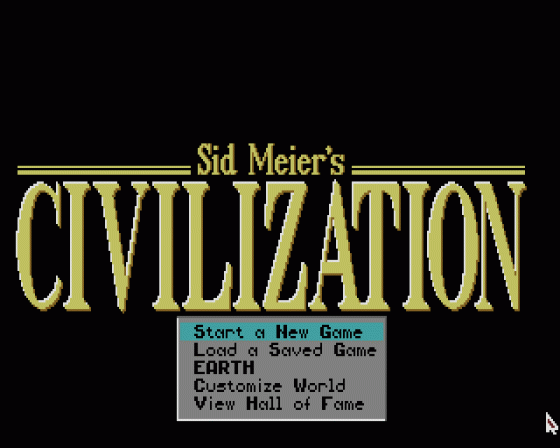
If all this sounds a bit complicated - and it is - there's plenty of help on offer. There's a Practical Advice option which gives you information about the best places and times to do things and you also have several in-game advisers - city, military, economic, domestic, attitude, trade and science - who keep you updated with your progress. There's also the Civilopedia which acts as a database of discoveries - for example, if you've just discovered the secret of Construction, it tells you how significant a breakthrough it has been for other cultures and what other discoveries you need to have made to put this new skill into practice.
As god games go, Civilization is more reminiscent of Sim City than Populous. It's all about strategic and economic management, not levelling the land and watching your opponents getting consumed by fire. This doesn't mean the game is dull, just that it demands more of your intellectual powers than some other games. In fact, Civilization becomes more and more addictive the further into it you get - once you've exhausted the possibilities of your immediate vicinity it's time to set sail for other lands and eventaully other planets. With five difficulty levels and nine different civilisations to choose from, this game could keep you at your ST for months.
Getting around the world of Civilization is simplicity itself. The game's controlled by a combination of mouse-controlled dropdown menus or keyboard shortcuts. Although it's hard drive installable, there's no multi-player option so you can't have any inter-continental battles between you and your pal's ST. Graphically the game looks like the map-based approach of Sim City or Civilization's predecessor Railroad Tycoon. There are very few animated sequences - the enemies' moves, and the peasants' revolts are a couple of the few examples. Even the meetings with the historical figures like Napoleon or Genghis Khan consist of stills. The game's so good though, it doesn't matter.
Verdict
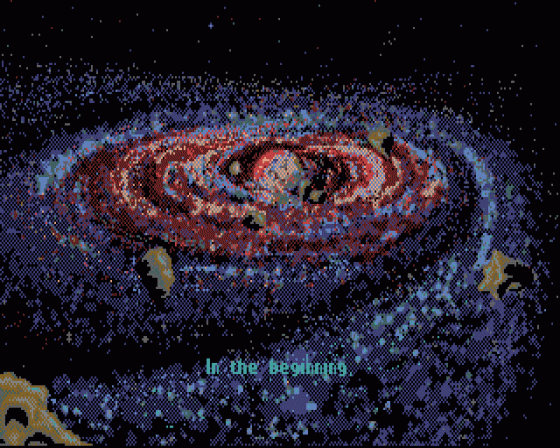
It took a long time, but Civilization has made it onto your ST. This game is a corker. It's a real challenge trying to keep your populace on an even keel while putting one over on your enemies.
Even if you lose, think that you've outlasted some of the world's great civilisations and did a better job than the peeps in power. A game worth giving up those long hot summer nights for.
Highs
Civilization's a brilliant brain-meltingly wicked guide to life, the universe and everything.
Lows
There's no multi-player option and the graphics are a bit puny.



